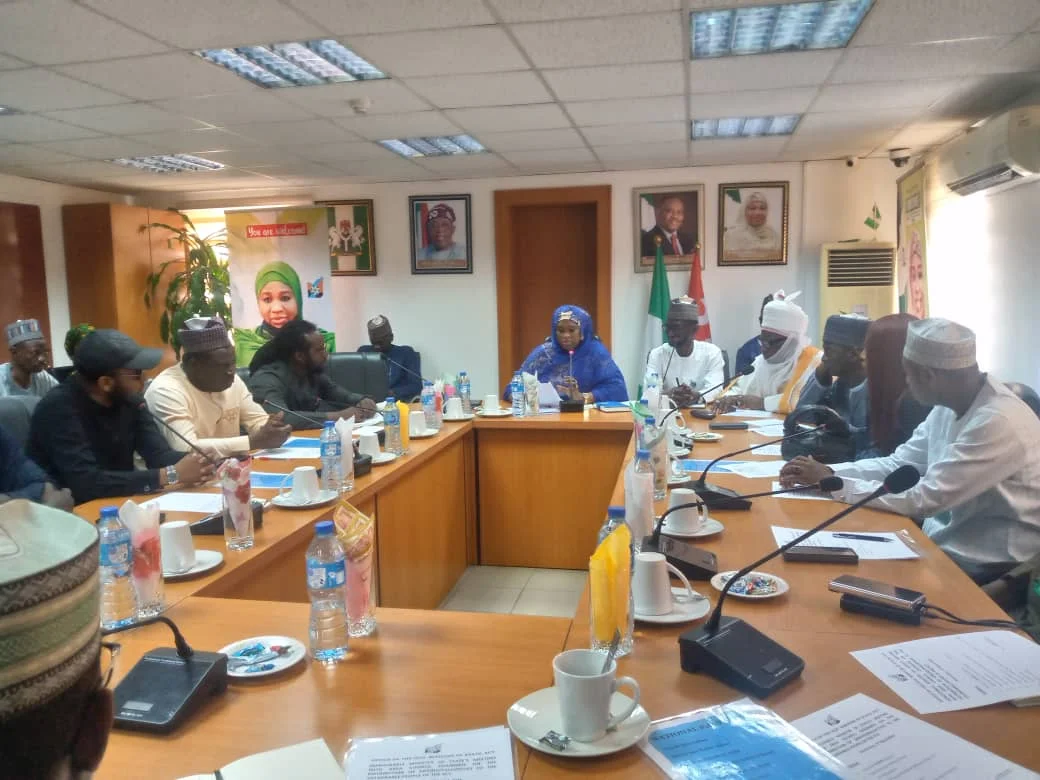Business
Senator Advocates Sufficiency In Rice Production Before Import Ban

Chief Marketing Officer, Dangote Group, Mr Oare Ojeikere (left), beneficiary, Mrs Ebiokpo Endurance (middle) and South-South Zonal Cordinator, Prince Chinonye Ikegwuraka with the cheque,during a mega million promo in Port Harcourt, recently. Photo: Nwiveh Donatus Ken
The Chairman, Senate Committee on Agriculture, Senator Abdullahi Adamu says sufficiency in rice production by Nigerian farmers must be certain if ban on rice importation is to make any meaning.
Adamu told newsmen in Abuja on Friday that Nigeria‘s current level of rice production was not commensurate with its teeming population.
The senator said ban on importation of rice would be sustainable if certain factors were properly addressed, including the issue of supply and demand and accurate census of the population.
“There are quite a number of factors: we must not kid ourselves, the population that we say we have, I believe we are more than the official figure we are throwing around.
“We are more than 170 million people: the fact is that we are not producing enough to feed this population,
“So, even if you wake up tomorrow and say stop bringing in anything food, yes; you can do that.
“You can start tuning the psyche of the population to accept the reality and try to adjust but is that the best approach?
“What is inhibiting our capacity to stop importation is the issue of supply and demand and unfortunately we don’t have enough of what we want.”
He, however, said that the ban on the importation of food crops would go a long way in stimulating the indigenous farmers to increase their level of production of the banned items for improved earnings.
The erstwhile President of All Farmers Association of Nigeria (AFAN) further said that rice importation was in a way increasing unemployment and inducing more losses for Nigerian farmers.
“Those who are into the business of importing, they will do anything to make sure that the import regime continues because that is how they make their money.
“The countries from where they import the commodities support our people buying from them and support the government or talk good of the government that supports import to our country from their countries.
“Each time we import from these countries we are putting their farmers in business and we are making their economy tick to the extent of our involvement economically with the produce we buy.
“I believe that the very fundamental responsibility, basis of any government, as we keep saying, is the protection and security of life and property.
“It starts with life and without food there can be no life; when you eat good and nutritious food that ensures your health and growth then you can pursue other legitimate businesses.
“So protection of life and property starts in a very ordinary way with capacity to feed: every citizen should be able to have three meals.”
He gave assurance that the present administration would make good its promises to improve the agricultural sector.
Adamu stressed the imperativeness of making food available at affordable rate to all Nigerians to enhance the general wellbeing of the populace.
The Tide source reports that ban on importation of food crops such as rice and wheat has been on the agenda of successive administrations.
Statistics indicate that Nigerian spends more than N600 billion annually on food importation.
Business
NCDMB Tasks Media Practitioners On Effective Reportage

Business
FCTA, Others Chart Path To Organic Agriculture Practices

The Federal Capital Territory Administration (FCTA) and other stakeholders have charted path to improved organic agriculture practices nationwide.
At a 2024 national organic and agroecology business summit held recently in Abuja, stakeholders took turn to speak on the additional areas of promoting the practices.
The Mandate Secretary, FCT Agriculture and Rural Development Secretariat (ARDS), Lawan Geidam, advocated for sustainable practice to develop resilient food systems that will benefit people.
The event, with the theme,”Towards Policies for Upscaling Organic Agroecological Businesses in Nigeria”, is aimed at fostering growth in the organic agriculture sector.
Geidam, who was represented by the Acting Director, Agric Services, in the Secretariat, Mr. Ofili Bennett, emphasised the success of organic and agroecological farming, reling on the active involvement of farmers, businesses and consumers.
He reassured attendees that the FCT Administration, led by the Minister, Nyesom Wike, and Minister of State, Dr. Mariya Mahmoud, remains dedicated to supporting initiatives that enhance the livelihood of residents.
Geidam described the partnership between the Secretariat and the organic and Agroecology initiative for a monthly exhibition and sale of organic products in the FCTA premises as a testament to this commitment.
“The ARDS remains committed to driving policies and initiatives that align with national goals and global standards”, Geidam said.
On her part, the Chairperson of Organic and Agroecology Initiative, Mrs. Janet Igho, urged residents to embrace healthy eating habits to sustain a good lifestyle. She stressed the importance of adopting organic practices, highlighting the benefits of going organic, growing organic and consuming organic products.
Igho expressed her optimism regarding the Agricultural Revival Programmes as articulated in President Bola Ahmed Tinubu’s “Renewed Hope Agenda”, which aims at fostering food and nutrition security.
She also extended her gratitude to ARDS for graciously allocating a space in the FCTA premises for the exhibition and sale of organic products, noting that the platform has been effectively used to advance the promotion of organic agriculture in FCT.
Igho outlined several benefits of organic agriculture which includes improved soil health, increased biodiversity, availability nutritious and healthy food and a reduced carbon footprint.
Stakeholders at the summit, underscored the critical need for enhanced private sector involvement and robust capacity building initiatives for farmers.
They highlighted the importance of implementing supportive policies to foster the growth of the organic agriculture sector.
In the light of the significant challenges facing Nigeria’s agricultural landscape, stakeholders decided that organic agricultural practices present sustainable solutions and a pathway for a more resilient and productive farming systems.
The three-day summit featured exhibitions showcasing organic foods, fruits, vegetables and fertilizers, providing an opportunity for residents to better appreciate the benefits of production and consumption of organic agricultural products.
Business
Dangote Refinery Exports PMS to Cameroon

-

 Politics4 days ago
Politics4 days agoWhy My Seat Should Not Be Declared Vacant By PDP – Ibori-Suenu
-

 Maritime4 days ago
Maritime4 days agoPrivate Sector Should Drive Blue Economy -Bello
-
Sports5 hours ago
NBF Announces Olympics Preparation Date
-
Nation3 hours ago
Community Organises Civic Reception For LG Boss
-

 News4 days ago
News4 days agoNavy Deploys 15 Warships, Three Helicopters To Boost Oil Production In N’Delta
-
Rivers9 hours ago
Expert Advocates IT Driven Security In Rivers
-
News5 hours ago
Tinubu To Present 2025 Budget To NASS Dec 17
-

 Oil & Energy4 days ago
Oil & Energy4 days agoNNPC Begins Export From PH Refinery

